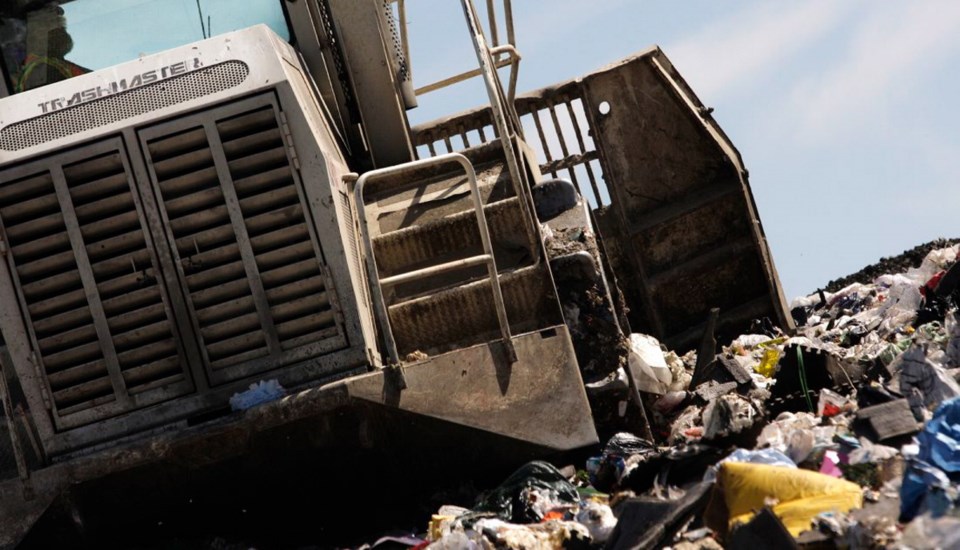The Capital Regional District should revisit the idea of burying kitchen scraps in a separate hole at Hartland landfill as a temporary measure as it looks for permanent processing solutions, chairman Alastair Bryson said.
“I think there actually is some merit in us re-examining that option that staff suggested early on,” Bryson told members of the CRD’s environmental services committee.
Calling it a “bio-cell,” Bryson said the lined hole would store organics only. Methane gas could be captured and used to generate electricity, he said. Once a more permanent solution to organics processing is found, the material could be mined and mixed with other organics.
Bryson noted the CRD already has an organics transfer station at Hartland. “We could be very responsible in the material that we actually put into that bio-cell from the transfer station. … We would actually be removing plastics, et cetera, going into the bio-cell and taking the responsibility for only putting clean organic material into that bio-cell. It’s not a landfill.”
He said he was too quick to discount the idea when it was first suggested. “I was concerned it was a kind of sweeping-it-under-the-rug approach early on, but actually I can see there was some wisdom in terms of the opportunities it provides for the community.”
Last year, scrambling to find something to do with thousands of tonnes of collected household food scraps in the wake of the suspension of commercial composter Foundation Organic’s operating licence, CRD staff suggested buying time by storing the scraps in a lined storage pit.
At the time, they said it would cost about $200,000 to build the facility at Hartland complete with “geotextile liner, leachate collection, clay capping and odour management,” and estimated it would cost about $600,000 a year to operate.
But CRD directors rejected the idea — opting instead to pay a premium to ship food scraps over the Malahat to Fisher Road Recycling. When Saanich inked a deal at Fisher Road to ship 8,000 to 11,000 tonnes a year, it ate up the Cobble Hill plant’s capacity. As a temporary measure, CRD directors awarded a contract of up to $4.7 million to Emterra Environmental to haul food scraps to Richmond for processing between April 2014 and December 2015, while a local solution is sought.
To extend the life of Hartland, the CRD plans to ban organics from the landfill by next year. Municipalities have responded by collecting organics separately, but have struggled to find a place to send it.
CRD staff are looking at options, including processing kitchen scraps at Hartland, and are expected to report in May or June.
Victoria Coun. Ben Isitt, a committee member, said he has heard from industry representatives who say they could compost food scraps, if a site at Hartland was available, for about $70 to $80 a tonne — about half of the $140 a tonne the CRD will have to charge for processing in Richmond.
The CRD is subsidizing the cost of food scraps disposal for several municipalities, including Victoria — effectively charging $87 a tonne.
“The impact on residents if that subsidy is gone is going to be huge, and I do not see the city relying on the Emterra contract after 2014,” Isitt said. “I know [the Emterra option] is available. It’s good to say it’s available. I don’t see private haulers depending on it. They’re going to find an alternative substantially lower than $140 a tonne.
“So if we don’t want the law of the jungle to prevail and everyone to fend for themselves, I think it’s incumbent on this committee and the board to work with our staff to figure out something less than $140 a tonne.”



